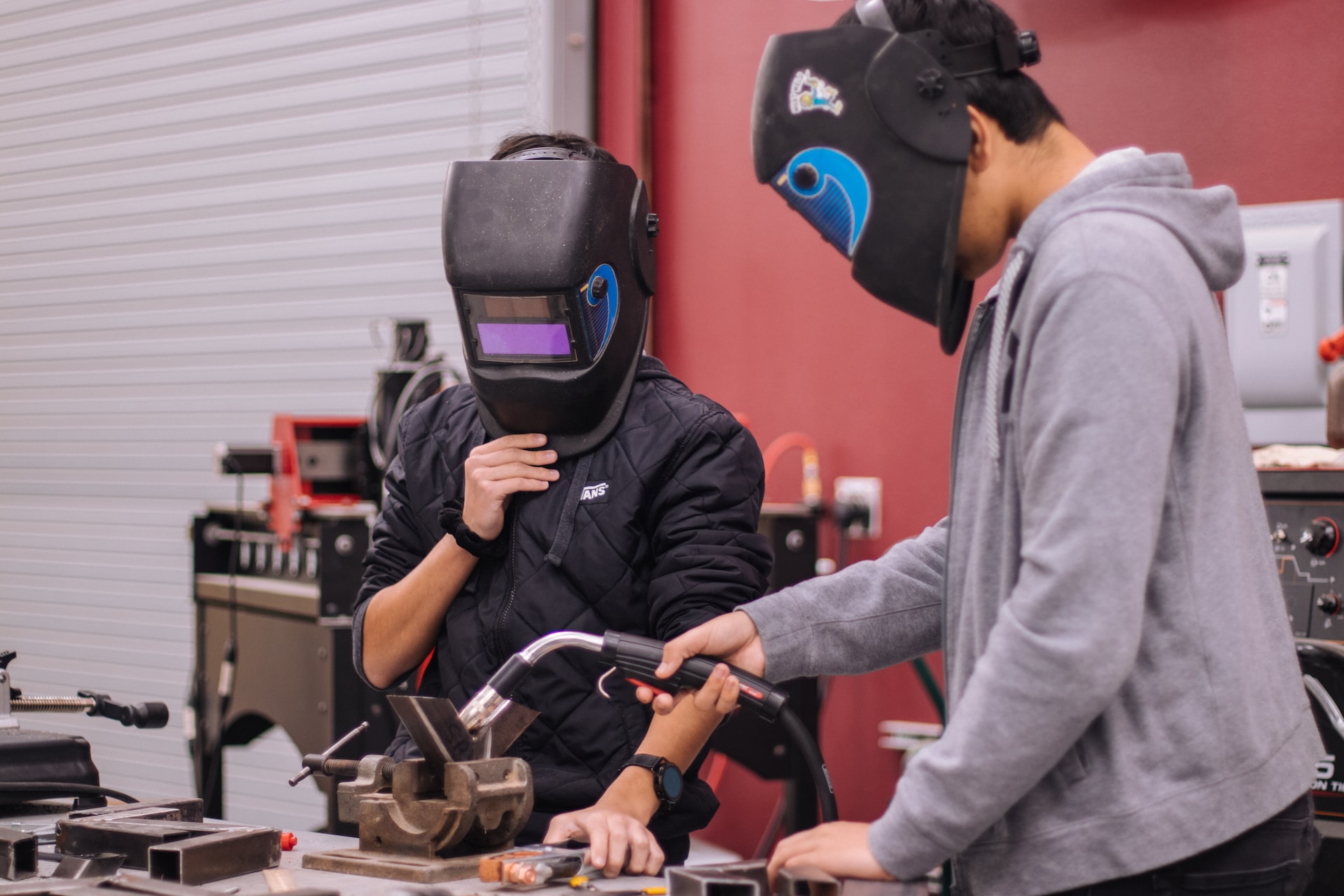I have always been a little in awe of primary school teachers. To daily wrangle with a room full of small children takes a special skill set and level of patience. I much preferred classes of large noisy teenagers. There was less chance that I would break them. The other major difference between primary and secondary teaching is that primary teachers are trained to teach almost everything. Secondary teachers will have specialties, often called methods, and usually two of them. Their training is specific to the content and pedagogy of their subjects. For me it was English and literature.
While I understood the differences between primary and secondary training, I assumed that went both ways, but I was wrong. In hosting a panel of teachers in the Victorian Government’s Digital Innovation Futures Festival 2022, discussing the integration of technology into K-12 classrooms, I realised that all the teachers on the panel, apart from me, were primary trained. They have all fulfilled different roles in their careers, and they are extraordinary educators, but their initial teacher education (ITE) was in primary teaching. So when they said that a good teacher can teach anything, or that they would prefer a teacher with passion, rather than one with knowledge, they were coming from the assumption that teachers are trained to teach everything.
That is not the case in secondary, and I have known some magnificent secondary teachers in a variety of disciplines.
Recent talk and teacher shortages
Recently there has been a lot of talk about out-of-field teaching. As there has been about the chronic teacher shortage and the frightening rate of teacher attrition. It would be a mistake to think that these situations are not linked in some way. I had to teach out-of-field 3 times in my career and each and every time I struggled.
If educators roll their eyes when these topics are raised, it is because they are not news. It would not take a major in prophecy to predict the teacher shortage.

Educators have known it was coming, and they have not been reticent in sharing the information. Unfortunately the people who needed to know weren’t listening.
And as far as out-of-field teaching is concerned, it appears to have become important because it is happening in STEM subjects. I am not saying that is not important, it is. But out-of-field teaching has been fairly normal for decades in the fields of English and maths. I have got to know an amazing Queensland teacher who tells me she has been an out-of-field English teacher for 20 years.
Out-of-field teaching is when a teacher has had no specific tertiary study or education training in the subject they are teaching.
To understand why this happens you need to understand how schools run and are staffed.
How schools function
Each year schools will have an allocation of staff. In public schools it is usually based on the number of students. However, the number of staff includes all staff with a teaching qualification. So, the principal, admin team, curriculum heads, librarians etc are all included in the number of teachers even though they are not in full time teaching roles.

Then you have the ever widening range of subjects that schools are encouraged to provide. All of them are valuable, but all of them require specialist teachers. Schools must have art, music and drama, information technology, manual arts, food technology, a selection of languages, various PE subjects to name only a few. And these subjects need teachers who are trained in managing the content as well as the OH&S issues. You certainly would not have wanted me in charge of students in a room with power tools or ovens.
But after Year 9, most of these subjects are elective. It is likely that some teachers of those subjects may not have a full teaching load in their specialty. They will have spaces in their timetable.
The complication of compulsory subjects
On the other hand, general maths is, and should be, compulsory through till at least Year 10 and English is compulsory every year. It is not possible for a school to have the number of specialist English or maths teachers to cover every class and still offer a variety of other subjects. So, what happens is that other specialist teachers with space in their timetable will be given an English or a maths class. Usually, but not always, it works out that teachers with a science or tech specialty will get a maths class and humanities and language teachers get given an English class.
It is no surprise that the classes they are given are usually Year 7s and Year 8s and often these teachers are early in their career. Back in 2016 the Australian Council for Educational Research (ACER) published an article that claimed that around 26% of teachers in Years 7-10 were teaching out-of-field, and that 37% of teachers in Years 7-10, who are teaching out-of-field, were early career teachers with only one or two years teaching experience.
To think that this situation is not fraught requires a significant level of disinterest.
The idiocy of NAPLAN
Each year, as some politician or other, equally uninformed person, gets all outraged over the latest NAPLAN results, the collective blood pressure of educators reaches the stratosphere.
The reality is not rocket science, it is not any kind of science. If NAPLAN tests students on literacy and numeracy in Years 7 and 9, when they are most likely to be taught by early career teachers not trained in English or maths, why would you expect the results to be good.

(Sidebar here: the damaging effects of NAPLAN on quality education are legion and could not possibly be included in any one article. )
Last year I wrote an article similar to this one for EducationHQ, that was specifically about the relationship between NAPLAN and out-of-field teachers.
Secondary English teaching
I like to think that I was a passionate teacher, that I brought a number of intertextual strains to teaching English. I like to think my classes were interesting and quite often there was fun to be had. English is different from most other subjects as there is not a set body of knowledge that needs to be passed on to the students. English study is concerned with developing a student’s ability to master the skills of reading, writing, speaking, listening, viewing and creating. The central task, though not always stated, is the process of teaching students how language can be used for both good and evil. Students are encouraged to apply critical thinking in different contexts, and to be aware that the reality that they inhabit is not the same reality inhabited by millions of other people in the world. Our method uses living texts like novels, poetry, plays and films to explore actual, real world themes and issues.
In the English classroom I was confident. No matter what distractions or curve balls that were thrown, I could usually find something in my arsenal to bring the learnings back to what we were working on. I loved teaching senior English classes. However, senior English teachers need to begin with the assumption that a large percentage of students in your class don’t want to be there. It is a compulsory subject for everyone. So, you need to plan accordingly. Your first few weeks with a new class need to be spent getting them to believe that it was going to be worthwhile spending the year with you. But that is only going to happen if you believe it yourself.
But
That never happened when I was teaching out-of-field. I was not confident. I needed to rely on a text-book to work through the subject knowledge. It has been a long time since text-books were a staple in English classes. I could only just keep ahead of the students. No matter how hard I tried to make the class interesting, if something didn’t work I had nowhere to go. Consequently I continually felt that I was failing, that I was letting the students down. They were not good years. Thankfully they did not happen early in my teaching career and I had sufficient confidence in myself as a teacher to not get overwhelmed by it. I can’t imagine how devastating it would be for an early career teacher. It is not surprising that they are lost to the profession in increasing numbers.
What is needed
The only way to address this situation is to put a huge amount of money into K-12 education. Something that no recent government of any party has felt the need to do. It will take money and political will.
While I may have disagreed with some of the education policies of the Singapore government, they put their money where their mouth was. Education spending in the early 2000s came second only to defence. People who would like to hold Singapore exam results up as an example, need to have a similar commitment to funding schools. Another important point about Singapore is that there is not a large private school sector like there is in Australia. There are some Independent schools which cost a little more, but they are still under the auspices of the Ministry of Education.
If politicians are serious about increasing outcomes for all students they need to make the funding available to have specialist teachers in all secondary classes. They also need to provide funding for professional development for teachers who need to teach out-of-field.
